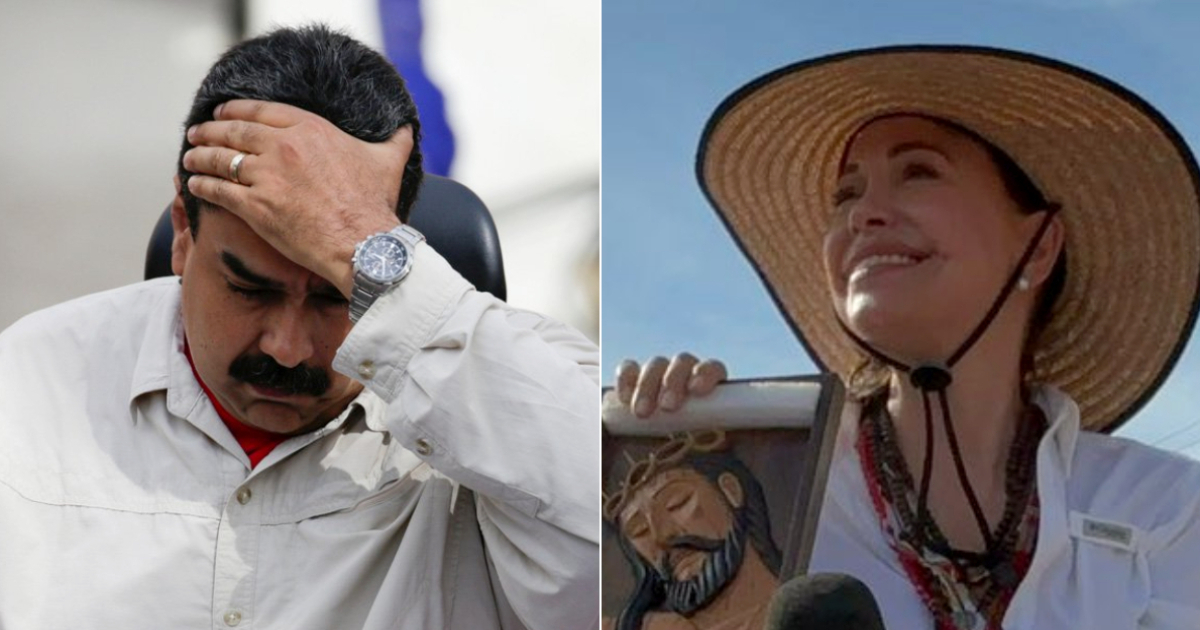
Opposition leader María Corina Machado proposed a "negotiated transition" of power in Venezuela, offering guarantees, safe conduct, and incentives to the ruler Nicolás Maduro to leave the Miraflores Palace.
Machado, who is in hiding out of fear for his life, responded to a questionnaire from AFP, highlighting his confidence in the opposition's victory in the recent elections and his allegations of fraud.
The opposition leader referred to the possibility of initiating a "negotiation for democratic transition," which would include "guarantees, safe conduct, and incentives for the parties involved, in this case, the regime that was defeated in that presidential election."
"We are determined to move forward with negotiations," insisted the 56-year-old leader. "It will be a complex, delicate transition process in which we will unite the entire nation."
Machado's statements come after the hypothetical offer from the United States to Maduro became known, providing him with extensive guarantees for his person in exchange for accepting his defeat and starting a peaceful transition process to democracy in Venezuela.
According to the prestigious British outlet The Economist, which consulted anonymous sources, the Biden administration would be willing to offer the Venezuelan dictator "whatever Maduro wants" as long as he stops the repression against opponents and protesters, transparently presents the records that validate the results of the recent elections, and recognizes the will for change of the Venezuelan people.
After elections denounced as fraudulent by the opposition, international organizations, observers, and several governments, the National Electoral Council (CNE) proclaimed Maduro as the winner with 52% of the votes, but refused to publish the details of the counting, claiming that the system was hacked.
The opposition, for its part, asserted that its candidate, Edmundo González Urrutia, won with 67% of the votes, presenting as evidence a website with copies of more than 80% of the scanned ballots. For its part, Maduro's government dismissed this evidence, calling it forged, and requested the Supreme Court to "certify" the elections, a process that the opposition and several academics consider inappropriate.
Machado, who took leadership of the opposition after a landslide victory in the October primaries, expressed his pride in the resilience of Venezuelan society in the face of what he called "the most unequal and arbitrary election" in the country's history. Despite being politically disqualified, Machado has been the brains behind the opposition campaign, working closely with González Urrutia.
Maduro's reelection has been questioned by the United States, the European Union, and several Latin American countries, who insist on the need for detailed scrutiny. Machado has called on the international community to recognize González Urrutia's victory and to pressure Maduro to accept a negotiated transition. "International forces are co-responsible for what happens in Venezuela," declared Machado, insisting that it is time for governments around the world to raise their voices against the repression in Venezuela.
In response to the electoral outcome, protests erupted in the country, leaving at least 24 dead and more than 2,200 detained, according to official figures. Machado, however, remains firm in her conviction that the truth will prevail and that on January 10, 2025, Edmundo González Urrutia will assume the presidency of Venezuela.
"We are a team, an indissoluble block," Machado told AFP about her relationship with González Urrutia. "All Venezuelans feared for our freedom and our lives, everyone," she confessed. "And I am outraged by this brutal reaction from the regime, but I am also calm and confident that we will uphold popular sovereignty and that the truth will prevail."
He also dismissed the high military command's declaration of "absolute loyalty" to Maduro, stating that many soldiers in charge of securing polling places supported the collection of documents for his website.
"What's left for Maduro at this moment is to entrench himself around the generation of violence and fear, on one hand, and a very small group of high-ranking military officials who do not represent the aspirations of the vast majority of our National Armed Forces," he stated.
"I am absolutely convinced that the vast majority of military citizens, as well as the police forces, long for a change to a Venezuela where there is justice, opportunities, and freedom," she insisted. "On January 10, 2025 (inauguration day), Venezuela will have González Urrutia as its new president and its new commander-in-chief."
What do you think?
COMMENTFiled under: